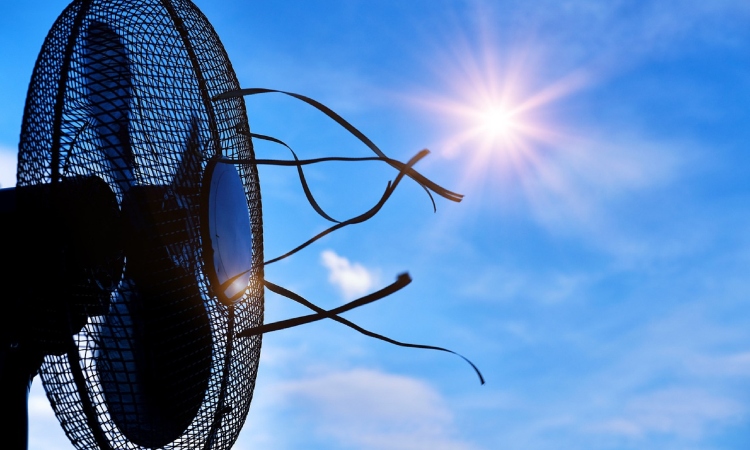
At the onset of summer, electricity usage has skyrocketed
City hit a peak electricity consumption of 8,128 megawatts
Bescom officials have urged caution against unnecessary electricity usage
This year, the scorching heat typical of April and May has arrived early. The sun’s intensity is escalating in the city, prompting people to rely more on electricity to escape its blistering rays. Consequently, at the onset of summer, electricity usage has skyrocketed, setting a new record in Bengaluru.
Residents are grappling with the intensified heat, seeking refuge in fans and AC coolers. As a result, electricity consumption has surged to unprecedented levels, raising concerns about potential load shedding.
The usage of fans, air conditioners, and air coolers has surged as people strive to combat the relentless sun. This surge in demand has propelled electricity consumption to record highs in Bengaluru. In February alone, the city hit a peak consumption of 8,128 megawatts, surpassing all previous records.
Last February, electricity consumption stood at 7,496 megawatts, but this year witnessed a significant increase to 8,128 megawatts. The spike can be attributed to widespread usage of ACs and fans, coupled with increased industrial and motor usage due to rising temperatures. Bescom officials have urged caution against unnecessary electricity usage, emphasizing the importance of conservation.
The surge in electricity consumption has also been fueled by the “Gruhajyothi” scheme. Consequently, fans, ACs, and coolers are running at full tilt, with many unconcerned about exceeding average unit consumption by a mere 100-200 rupees.
Looking ahead, March’s peak demand is estimated to reach 8,300 megawatts, with concerns looming over potential load shedding amidst escalating consumption. As April and May approach, the anticipation of further electricity consumption exacerbates worries about potential summer load shedding.
The onset of summer brings not only water shortages but also soaring temperatures that pose significant health risks. Thus, it becomes imperative to prioritize health and take necessary precautions against the sweltering sun.

At the onset of summer, electricity usage has skyrocketed
City hit a peak electricity consumption of 8,128 megawatts
Bescom officials have urged caution against unnecessary electricity usage
This year, the scorching heat typical of April and May has arrived early. The sun’s intensity is escalating in the city, prompting people to rely more on electricity to escape its blistering rays. Consequently, at the onset of summer, electricity usage has skyrocketed, setting a new record in Bengaluru.
Residents are grappling with the intensified heat, seeking refuge in fans and AC coolers. As a result, electricity consumption has surged to unprecedented levels, raising concerns about potential load shedding.
The usage of fans, air conditioners, and air coolers has surged as people strive to combat the relentless sun. This surge in demand has propelled electricity consumption to record highs in Bengaluru. In February alone, the city hit a peak consumption of 8,128 megawatts, surpassing all previous records.
Last February, electricity consumption stood at 7,496 megawatts, but this year witnessed a significant increase to 8,128 megawatts. The spike can be attributed to widespread usage of ACs and fans, coupled with increased industrial and motor usage due to rising temperatures. Bescom officials have urged caution against unnecessary electricity usage, emphasizing the importance of conservation.
The surge in electricity consumption has also been fueled by the “Gruhajyothi” scheme. Consequently, fans, ACs, and coolers are running at full tilt, with many unconcerned about exceeding average unit consumption by a mere 100-200 rupees.
Looking ahead, March’s peak demand is estimated to reach 8,300 megawatts, with concerns looming over potential load shedding amidst escalating consumption. As April and May approach, the anticipation of further electricity consumption exacerbates worries about potential summer load shedding.
The onset of summer brings not only water shortages but also soaring temperatures that pose significant health risks. Thus, it becomes imperative to prioritize health and take necessary precautions against the sweltering sun.
